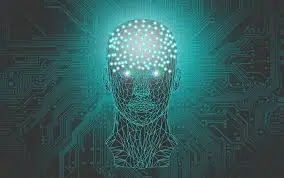Machine Learning In Healthcare
{tocify} $title={ARTICLE INDEXING}
Every industry is now being affected by digitalisation or digital transformation. As a result, acquiring the ability to collect and deliver data has become urgent for all industries. Machine learning, big data and artificial intelligence (AI) can be helpful in addressing the challenges that come with working with huge amounts of data in the healthcare sector as well.
Machine learning can also help meet the growing demand for medical or healthcare, improve surgical procedures, and reduce medical costs.
In addition, with the help of machine learning technology, it will be possible to accurately diagnose patients at the individual level with more efficiency. This technology will also be helpful for doctors during treatment.
What is machine learning?
One of the most common forms of AI or artificial intelligence is machine learning. With the help of this technology, by processing a huge amount of data, the pattern can be found and the correct decision can be made on all the complex issues.
Applications used in machine learning contain algorithms. An algorithm is a set of instructions or instructions for performing a specific task properly. These algorithms are designed to learn from data independently without human intervention.
Read More: What is an algorithm?
Over time, machine learning algorithms make it possible to accurately predict a situation without any programming. There are 3 important parts to the algorithm used in machine learning. These are statements, evaluations and optimizations as well as the most effective use of resources and situations.
A statement or representation means that the data must be arranged in a form and language that the computer can use. The next part, that is, the field of evaluation, is prepared to determine whether it is suitable to classify any data.
Finally, as part of the optimization process, the algorithm finds the best model to get the most effective and accurate results.
Types of machine learning
Machine learning goes through a process of machine or device learning. All the complex problems are solved with the help of machine learning technology by building different basic models. Every time a machine learning algorithm analyzes data and finds a new pattern, the model changes. Through this method the machine acquires capability in learning and continues to provide more accurate results over time.
An algorithm can go through this learning process without any kind of programming. Machine learning can be basically divided into 3 parts. E.g .:
• Supervisor Learning
• Supervisor Learning
• Reinforcement learning
Application of machine learning in healthcare
By applying machine learning, various issues including treatment protocols can be done more accurately through different processes of algorithms. Deep learning, for example. It is a type of complex machine learning that mimics the activities of the human brain.
It is currently being used in radiology and medical imaging. Currently, deep learning applications can detect and analyze cancerous lesions from images using neural networks capable of learning from data without any supervision or supervision.
With the rapid processing and development of cloud computing infrastructure, machine learning applications are now able to detect more inconsistencies than what is visible to the human eye. As a result, many diagnostic and medical tasks can be performed easily and accurately.
The advancement of machine learning in healthcare is changing the entire healthcare industry. Two of the newest machine learning applications that are being developed recently are diabetic retinopathy and a diagnostic tool to present predictive analysis to determine the recurrence of breast cancer based on medical records and images.
Hygiene Machine Learning
The effects of machine learning are most noticeable in the three fields of health sciences. They were discussed one by one.
• Record keeping
In health sciences, machine learning can perform a variety of record-keeping functions, including electronic health records or EHRs. Using artificial intelligence to improve EHR management can improve the quality of patient care, reduce healthcare and administrative costs, and make surgery more efficient.
One such example is natural language processing. This allows physicians to easily record and incorporate clinical notes or information. As a result, many complex tasks no longer need to be done by hand. Machine learning algorithms will facilitate physicians in EHR management by assisting in various complex medical decisions, increasing the use of automated image analysis and telehealth technology.
• Integration of data or information
Machine learning algorithms can create erroneous predictions if there is a gap in healthcare information. As a result, complex decisions in the medical system can have a negative impact.
However, since data or information in healthcare will be stored primarily for EHR, data must be prepared in advance so that machine learning algorithms can use it effectively.
In this case, professionals will be responsible for maintaining data or information integrity. They will perform important tasks such as collecting data, analyzing, classifying and sorting out unnecessary information.
• Predict Analytics
Machine learning will help improve various healthcare processes, transform various decision-making tools, and better analyze results for the benefit of the patient. Predictive analytics will make the commitment to change healthcare through machine learning possible.
As a result, health related data will be efficiently collected and analyzed to predict the outcome on various complex issues. Through which more accurate diagnosis and treatment will be possible. At the same time the physician’s insights into the treatment at the individual level can be improved for each patient.


